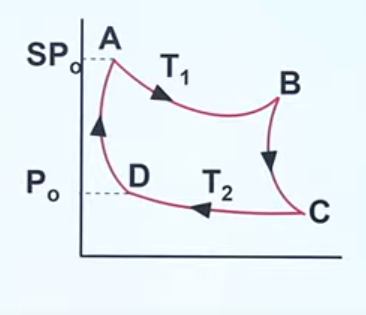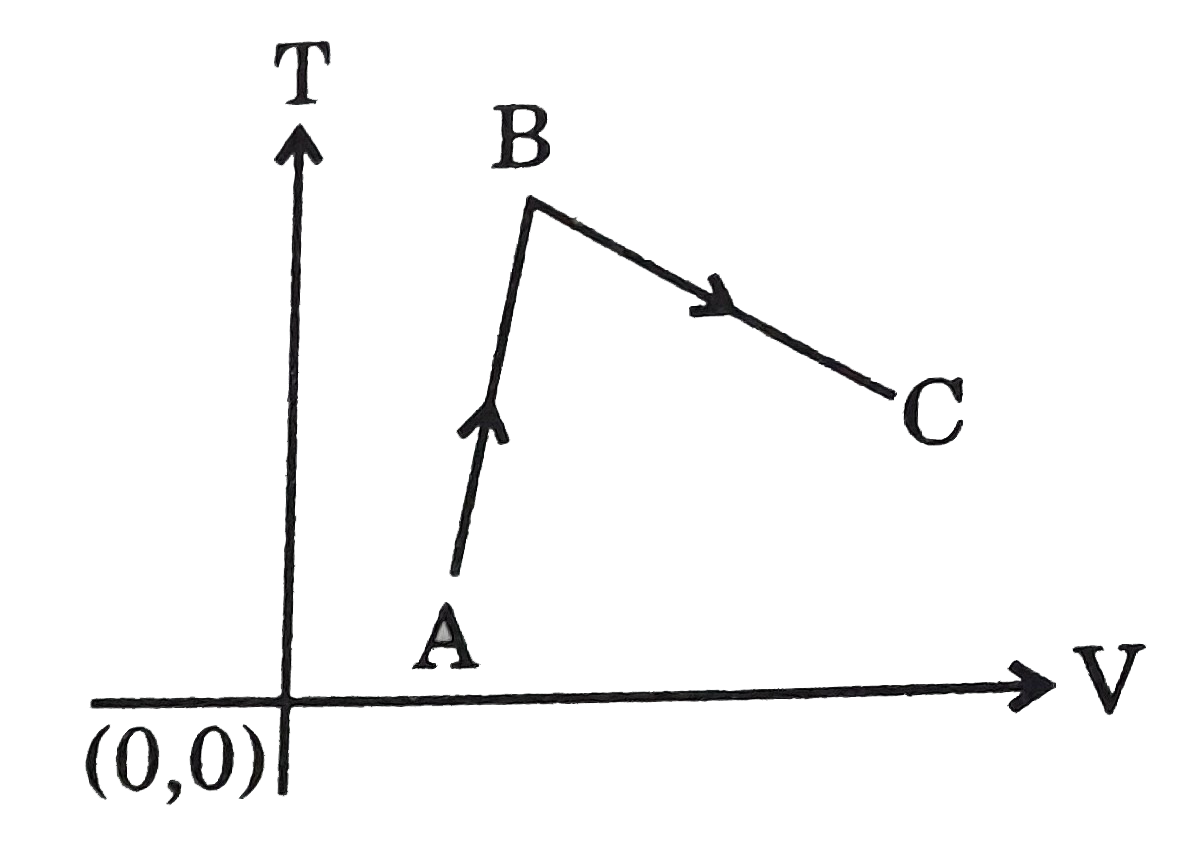In an isobaric process, when temperature changes from T1 to T2,ΔS is equal to
2.303Cplog(T2/T1)
2.303Cpln(T2/T1)
Cpln(T1/T2)
CVln(T2/T1)
The correct Answer is:A
The entropy change for a process, when T and P are the variables is given by
ΔS=Cpln.T2T1−Rln.P2P1
For an isobaric process P1=P2. Hence the above equation reduces to
Cpln.T2T1=ΔS.
orΔS=2.303Cplog.T2T1
Topper's Solved these Questions
Similar Questions
An ideal gas with a known γ, completes a cycle consisting of two isotherms and two isobars. The isothermal processes are executed at temperatures T and T'(<T) and isobaric processes are completed at pressures P0 and eP0 [e = base of natural logarithm]. Find the efficiency of the cycle.
View SolutionIn a thermally isolated container, material A of mass m is placed against material B, also of mass m but at higher temperature. When thermal equilibrium is reached, the temperature changes ΔTAandΔTB of A and B are recorded. Then the experiment is repeated, using A with other materials. All of the same mass m. The results are given in the table. Rank the four materials according to their specific heats, greatest first.
ExperimentTemperatureChanges1.ΔTA=+50C∘ΔTB=−50C∘2.ΔTA=+10C∘ΔTC=−20C∘3.ΔTA=+2C∘ΔTD=−40C∘
View Solution
Knowledge Check
In an adiabatic process, the state of a gas is changed from P1,V1,T1,toP2,V2,T2. Which of the following relation is correct
AT1Vλ−11=T2Tλ−12BP1Vλ−11=P2Vλ−12CT1Pλ1=T2Pλ2DT1Vλ1=T2Vλ2When temperature of a reaction mixture is changed from T1 to T2 half life is found to decrease thus,
AT2>T1 and the reaction is endothermicBT2>T1 and the reaction is exothermicCT1>T2 and the reaction is endothermicDT2>T1 and the reaction can be endothermic or exothermicFor an ideal gas,
(i) the change in internal energy in a constant pressure process from temperature T1 to T2 is equal to nCV(T2−T1), where CV is the molar heat capacity at constant volume and n is the number of moles of the gas
(ii) The change in internal enregy of the gas and the work done by the gas are equal in magnitude in an adiabatic process.
(iii) The internal energy does not change in an isothermal process. ltbr> (iv) no heat is added or removed in an adiabatic processA(i),(iii)B(ii),(iii)C(iii),(iv)Dall
For a cyclic process ABCD, AB has temperature T1 and BC has T2 (T1>T2) then,

View SolutionUnder isobaric condition, volume becomes 1.5 times when temperature changes from
View SolutionChoose the correct relation, when the temperature of an isolated black body falls from T1 to T2 in time 't' and assume 'c' to be a constant.
View SolutionIn an adiabatic expansion of a gas initial and final temperatures are T1and T2 respectively, then the change in internal energy of the gas is
View SolutionIn the given isobaric process shown by graph between T and V.

View Solution
